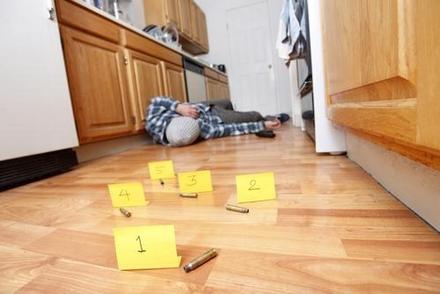TELEPHONES ANSWERED 24 HOURS A DAY
Not All Homicide is Created Equally
 Most individuals know that taking another human life without a defense or justification is a crime. But not all takings of life are punished in the same manner. Depending on the circumstances surrounding the taking of another life, a person can find him- or herself charged with any one of a variety of homicide-related offenses. Obviously, the more serious the homicide offense, the more severe the penalties a criminal defendant can expect to face. Aggressive and knowledgeable defense counsel can help defendants by arguing the facts support a less-severe form of homicide and ensure their clients face the least severe penalties as possible.
Most individuals know that taking another human life without a defense or justification is a crime. But not all takings of life are punished in the same manner. Depending on the circumstances surrounding the taking of another life, a person can find him- or herself charged with any one of a variety of homicide-related offenses. Obviously, the more serious the homicide offense, the more severe the penalties a criminal defendant can expect to face. Aggressive and knowledgeable defense counsel can help defendants by arguing the facts support a less-severe form of homicide and ensure their clients face the least severe penalties as possible.
First Degree Murder
First degree murder occurs when an individual kills another and:
- Intends to kill or cause great bodily harm to another or knows his or her actions will cause death to that other individual;
- Knows his or her actions create a “strong probability” that the other individual will be killed or suffer great bodily harm; or
- He or she is committing a forcible felony.
First degree murder can be punished by the death penalty or imprisonment for one’s natural life if one or more aggravating factors are found. If not, a defendant may be sentenced to as few as 20 years and as many as 100 years in prison.
Second Degree Murder
Second degree murder is also an unlawful and unjustified killing of another that occurs:
- When the person kills the other under a “sudden and intense passion” resulting from “serious provocation” coming from the individual killed; or
- When the offender believes the facts and circumstances were such that the killing would be exonerated or justified.
Second degree murder can be punished by as few as four years in prison and up to 20 years of imprisonment.
Involuntary Manslaughter and Reckless Homicide
Still farther down the list of homicide offenses are involuntary manslaughter and reckless homicide. Involuntary manslaughter occurs when the killing is unintentional but the defendant acts in a way that death or great bodily harm is likely to occur. Reckless homicide occurs when an unintentional death results from reckless acts likely to cause death or great bodily harm. These offenses can result in as few as three years in prison up to 14 years in most cases.
An Illinois Criminal Defense Attorney Can Help
Being charged with a homicide-related offense in Illinois is serious. If you find yourself charged with such an offense, you need aggressive and competent counsel. Homicide-related offenses are very dependent on the facts, and even small or seemingly-unimportant facts can mean the difference between a few years in prison or facing the death penalty. Experienced Chicago criminal defense attorney Hal M. Garfinkel carefully analyzes the facts of each case and ensures all relevant circumstances are presented. Contact the Law Offices of Hal M. Garfinkel LLC, Chicago Criminal Defense Attorney at 312-629-0669 for a free consultation today.




